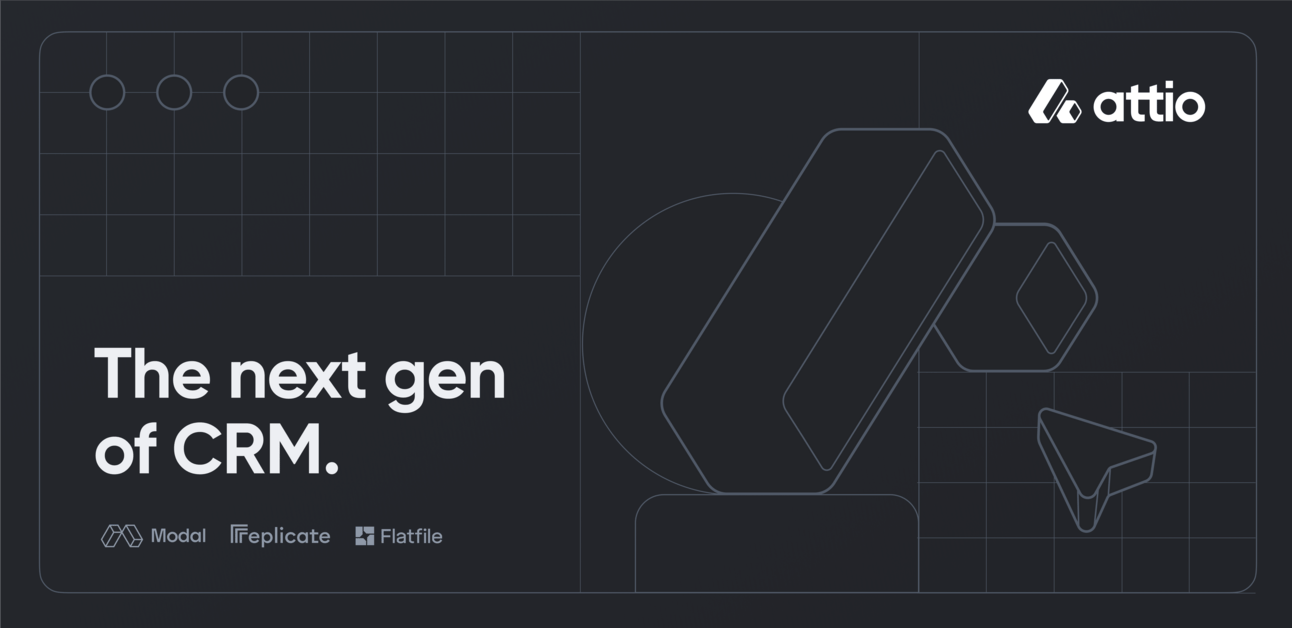Was this newsletter forwarded to you? Sign up to get it in your inbox every week.

⚙ Hi {{first_name_tally|Operator}},
Thanks to the 90+ people who have submitted a job profile so far! We’ve helped connect 8 operators to startups in the past month. And I hope we can keep this momentum going.
If you’d like to submit your profile to get connected to interesting opportunities, just submit your information here.
I’ll reach out when I can find a great fit.
- Rameel

PRESENTED BY ATTIO
The next generation has arrived
Most CRMs were built for yesterday.
Attio is built for what's next.
Attio is an AI-native CRM platform built for builders of the future. Its powerful data structure adapts to your business model, scaling you from seed stage to category leader.
With Attio, your CRM builds itself in minutes through automatic data sync, which enhances your operational workflows with actionable data.
Then unleash the full power of the platform - from AI-powered automations that handle even your most complex business processes, to our research agent that can help with prospecting and lead routing at scale.
Join industry leaders like Flatfile, Replicate, Modal and more.
Thanks to our sponsors who keep this email free. Interested in sponsoring these emails? See our partnership options here

Jobs, jobs, and more jobs
Here are 7 Series B or earlier companies (and raised >$30M) hiring operators right now:
P.S. Searching for your next role? Fill this out, and we’ll intro you

A Simple Guide to Clear Performance Standards
Insight from MindTools
In 2019, we lost one of Uber's top-performing account management reps. She wasn't poached by a competitor. She wasn't burned out.
She quit because after 2 years of consistently beating her numbers, she still couldn't get a straight answer about what it would take to move up to senior level.
"I hit every target, built a $2M book of business, and trained four new reps," she told me when we grabbed lunch after putting in her two weeks notice.
"But apparently that's not enough. I just wish someone had told me what 'enough' actually looked like."
That's when I realized we had a clarity problem.
After that chat, I dug deeper. Turns out only 16% of employees say they understand what their company expects from them. At Uber's scale, that meant thousands of talented people were essentially driving blind.
We needed to write down what "good" looks like at every level. That's all a competency framework is. This is how to build one yourself.
Keep It Dead Simple (Really)
We broke performance into three clear levels:
Baseline: Consistently hits quarterly targets, maintains 85%+ customer retention, handles basic account issues independently
Better: Exceeds targets by 20%+, spots upsell opportunities others miss, mentors new reps informally
Best: Builds $2M+ books of business, creates repeatable sales processes others can follow, turns around struggling territories
Notice how specific these are? We literally took what our top performers were already doing and wrote it down.
Focus On What Actually Moves the Needle
The first draft I saw at Uber had 47 different competencies for sales roles. Nobody could remember them all, let alone use them.
So we asked our top performers: "What actually makes the difference between good and great in your role?"
They helped us narrow it down to 5 key areas:
Deal Closure Rate (can they get signatures when it counts?)
Territory Management (do they know where to focus their time?)
Relationship Building (can they turn one-time deals into long-term partnerships?)
Problem Solving (how do they handle when things go sideways?)
Team Impact (are they making others better?)
That's it. When we focused performance discussions on these five areas, suddenly everyone knew exactly what to work on.
Make It Real
A framework is useless if it just sits in your drive. So we tested with one regional team first, building it into our daily operations:
Performance reviews became focused and actionable
Hiring discussions got clearer, showing candidates exact growth paths
Weekly huddles highlighted framework wins
We also learned to adapt. What worked in San Francisco needed tweaking in Chicago, so we added market-specific examples while keeping core standards consistent.
Your first framework won't be perfect. But a clear-but-imperfect target beats no target at all. Start small, get specific, and test in the real world.
Watch what happens when people finally understand what success looks like.
P.S. Let me know what you thought of today’s piece! Reply to this email or tell me here!

Help me help you




